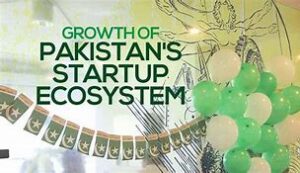
Pakistan has made great progress in creating a flourishing and dynamic startup environment in recent years. With more than 220 million people living there and an increasingly tech-savvy younger generation, Pakistan offers a promising environment for new businesses and entrepreneurs.
Pakistani Startups
Pakistan’s startup environment ought to have been booming for many years now, just based on demographics. To begin with, with close to 230 million people, it has the sixth highest population in the world. Additionally, with a median age of 22, this population is mainly youthful and bilingual, speaking English since it is the fourth most spoken language in the globe. You have a perfect storm for new businesses and digital services when you combine the fastest-growing middle class, over 100 million mobile broadband users, and hundreds of thousands of IT workers.
But Pakistan has also been known in recent years for its quickly developing startup scene. Pakistan’s sizable and young population is one of the main causes of this expansion. With more than 60% of its people under 30, the nation boasts a sizable talent pool of tech-savvy people who are ready to develop and produce.
In addition, Pakistan has seen a digital revolution as evidenced by rising smartphone and internet usage. With the introduction of 3G and 4G networks and the availability of reasonably priced smartphones, new prospects have emerged for internet companies and startups. The market for tech-based products and services has the potential to grow as more Pakistanis get access to the internet.
Small Business Ideas and Opportunities
Fintech
Pakistan’s fintech industry has grown remarkably in the last several years. With a population that is primarily unbanked, digital financial services have enormous potential. To close the gap and make financial inclusion accessible to all, fintech startups are coming up with creative solutions like payment gateways, peer-to-peer lending platforms, and digital wallets.
We have identified important themes affecting the future of fintech’s based on research and interviews with over 100 entrepreneurs, executives from fintech and banking, investors, and senior players in the ecosystem. We also offer a framework for sustainable growth, derived from an examination of the tactics employed by well-established public firms that have withstood past economic cycles, to assist fintech’s in capitalizing on these themes.
Two of Pakistan’s top digital payment companies, Jazz Cash and Easy paisa, have been instrumental in advancing cashless transactions and opening up digital financial services. These platforms are vital resources for routine financial activities since they include services like bill payment, cellphone top-ups, and even loan access.
E-commerce and Online Learning
The e-commerce industry in Pakistan has experienced exponential growth, driven by the increasing trend of online shopping and the convenience it offers. Leading e-commerce platforms like Daraz, which was acquired by Alibaba Group, and local player Shops.pk have become household names.
In addition, the COVID-19 epidemic increased the development of e-commerce as more customers resorted to online buying for convenience and safety. Due to this change in customer behavior, entrepreneurs now have more options to start new e-commerce businesses that target different categories including food, electronics, and fashion.
Health Technology
Through Health Tech firms, Pakistan’s healthcare industry has also experienced innovation. These firms are using technology to address issues related to healthcare, such as medicine, health information distribution, and access to high-quality medical services. Patients and healthcare professionals may schedule appointments and get online medical advice through platforms like Marham and oladoc.com.
Education Technology
In Pakistan, the EdTech industry has experienced tremendous growth as a result of the pandemic’s disruption of traditional schooling. Students of all ages may access video lectures, online learning platforms, and tutoring services from EdTech businesses. Due to the transition of educational institutions to remote learning, there is an increased need for these services.
Students’ learning experiences are improved by interactive and captivating instructional content offered by platforms such as Knowledge Platform and SABAQ.
Logistics and B2B commerce
Logistics services that can meet the needs of an online market are becoming more and more necessary as e-commerce grows. Operating systems for B2B trade, such as marketplaces, last-mile shipping, software, and financial products, are being developed by some investors. Ultimately, in 2021, e-commerce start-ups received more than half of all investment, divided between B2C and B2B start-ups.
In the business-to-consumer (B2C) space, there are a variety of start-ups providing expedited grocery and convenience item delivery, as well as online ticketing, pharmaceutical delivery, and fashion purchasing. The informal retail sector, which consists primarily of mom-and-pop corner businesses known as “kiryana stores” in Pakistan, is rapidly digitizing on the B2B side.